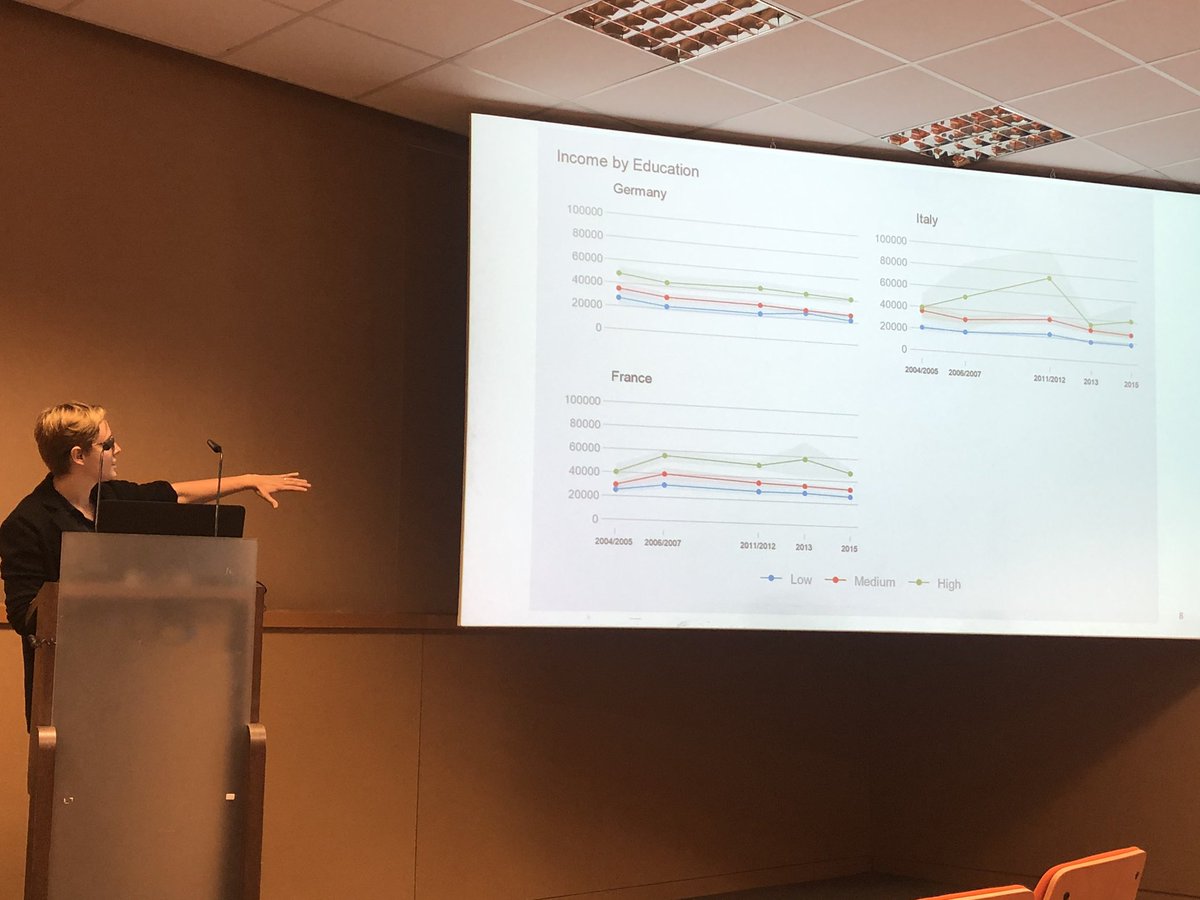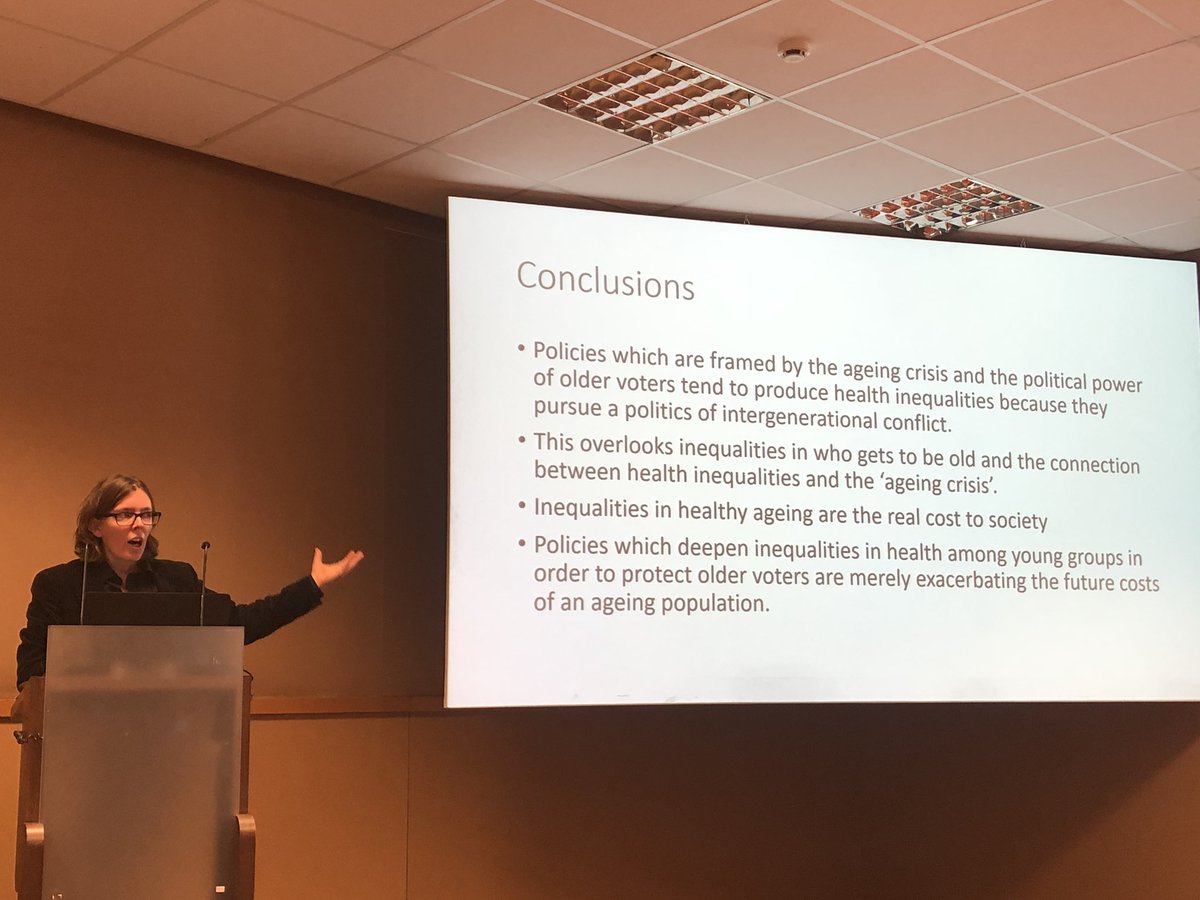Learning about the politics of ageing at #2019eph with @LucieKalousova @juliaflynch @joncylus @ProfBambra @m_falkenbach @jrgingrich and @scottlgreer @EPH_PHPPsection @OBShealth
1/ Ageing is not the same experience across countries and education groups, e.g. more evidence of inequality in Italy than Germany
2/ What’s the political evidence that older people’s votes determine social policy? Overblown assumption that older voters will be deciders - they have similar prefs to young, They don’t vote as a block, They don’t primarily vote on older people issues
3/ Can states sustain political support for both inter-generational equality and intra-generational equality ‘the high road’? Examples are rare- Scandinavia 70s/80s and Germany 2000s, key is to understand role of coalitions around gender issues
4/ ‘Old versus young’ framing is being used as a distraction from real health problems relating to inequality among large section of the population. Talk of an ‘aging crisis’ likely to be used to justify ‘low road’ policies
5/ Conclusion: two false narratives ‘greedy old people’ w benefits paid for by young & ‘sick old people’ who drain national budget. Both are distractions from real inequalities, inc. economic, geographic, gender, racial
It’s a fallacy that politics is demand led. Inter-gen stories of conflict won’t improve things. There’s also no shared story across countries. But what can work is examining and constructing political coalitions of support to create policy change.

 Read on Twitter
Read on Twitter









